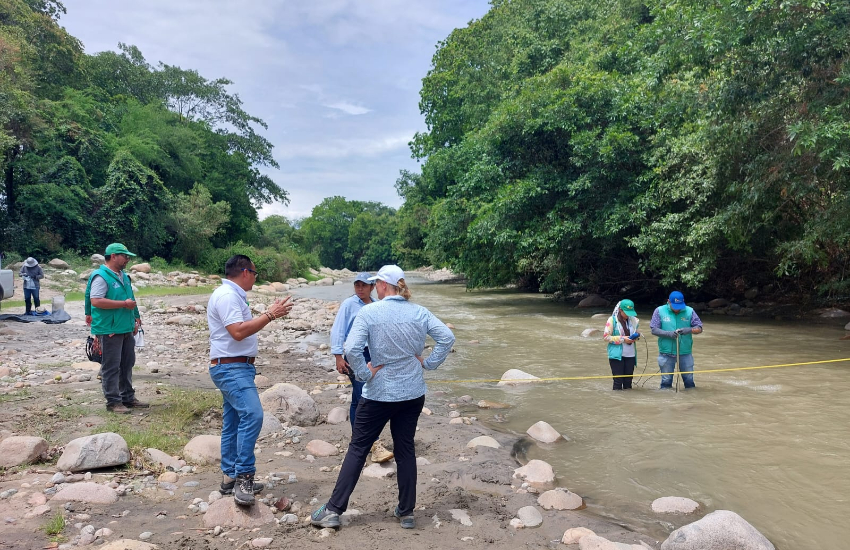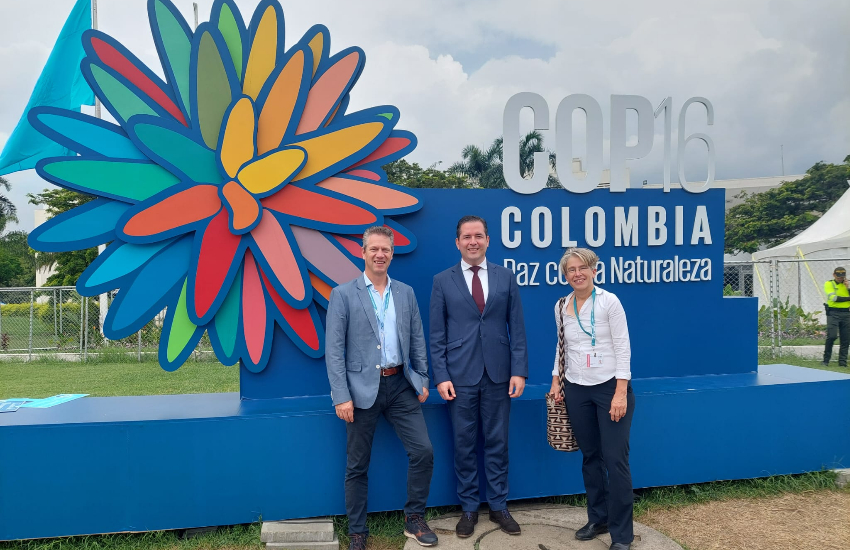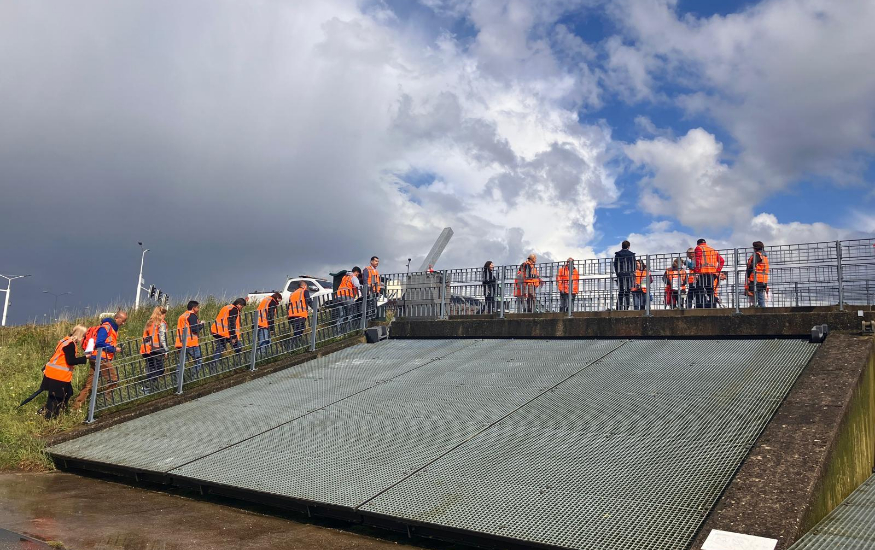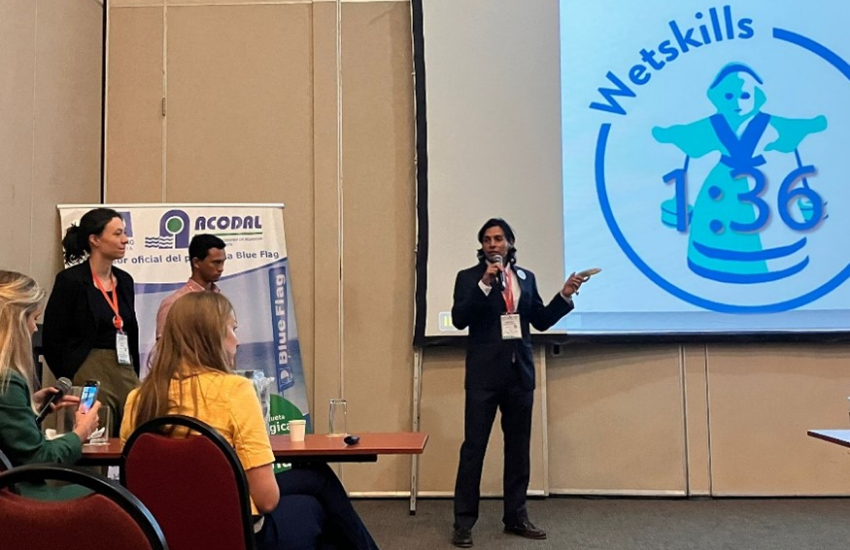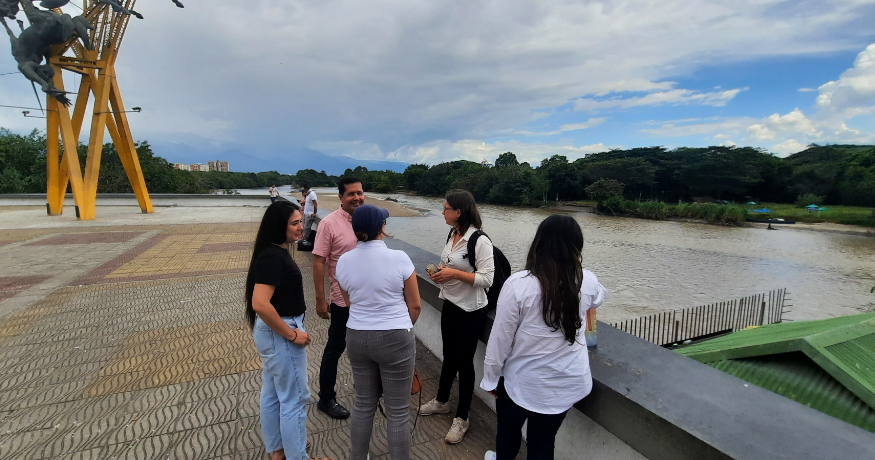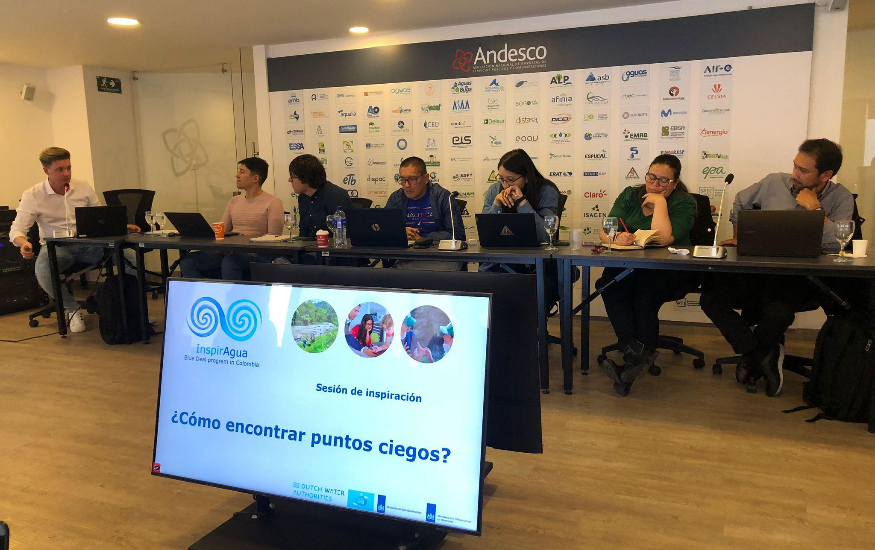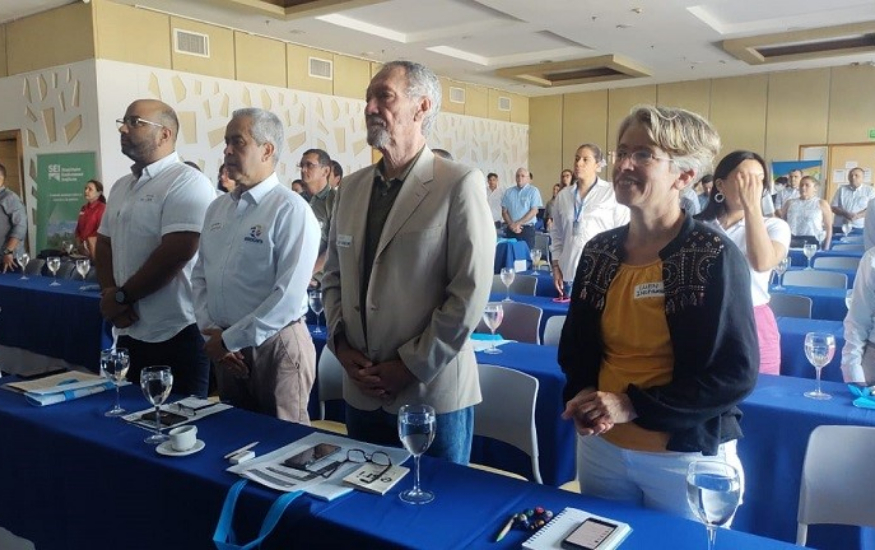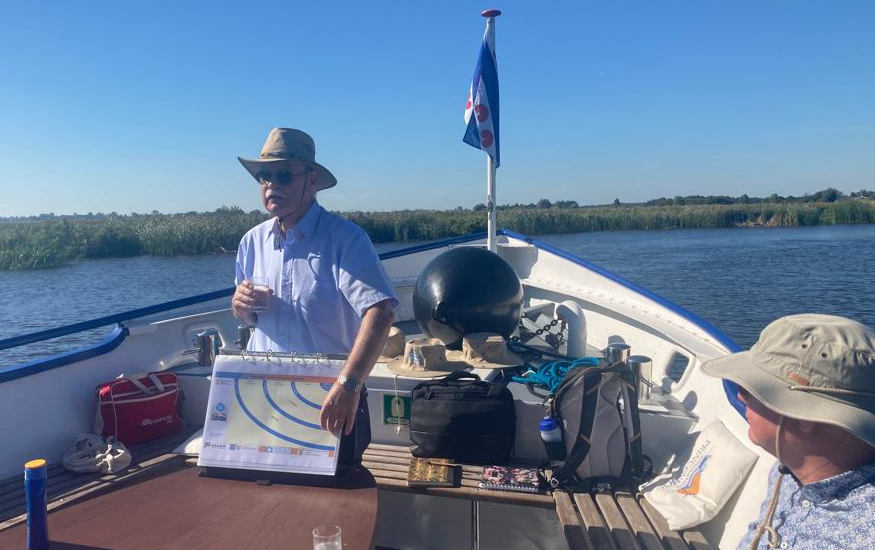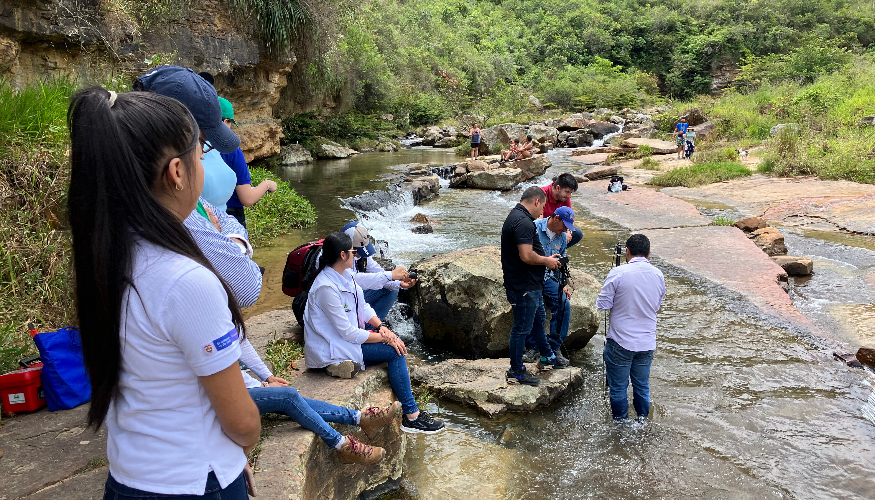As part of the Blue Deal’s commitment to sustainable water management and capacity building, the Young Expert Programmes (YEP) empower young professionals to gain hands-on experience in an international and intercultural environment. Over a two-year period, YEPpers receive a dynamic mix of training, coaching, and mentoring to develop both personal and professional skills. Within the Blue Deal partnerships, local YEPpers take on meaningful roles that contribute directly to water-related Sustainable Development Goals (SDGs).

One of these inspiring professionals is Mariana García, a Young Expert working at Aguas de Manizales S.A. E.S.P., the water utility company in Manizales, Colombia. As part of the Blue Deal initiative InspirAgua, Mariana has spent the past nine months contributing to both technical and strategic processes within the organization.
Driving Technical Innovation
Mariana’s work has focused on strengthening asset management and wastewater discharge systems. One of her key achievements is the development of a prioritisation matrix for network optimization projects. This tool supports investment decisions for infrastructure upgrades, especially in vulnerable areas, by assessing community risk and water supply needs.
She also designed a review plan for aging pipelines, targeting those in poor or unknown condition to prevent failures and improve service reliability. Currently, she is collaborating on a strategic replacement plan for asbestos-cement pipelines, aiming to reduce health risks and enhance infrastructure sustainability.
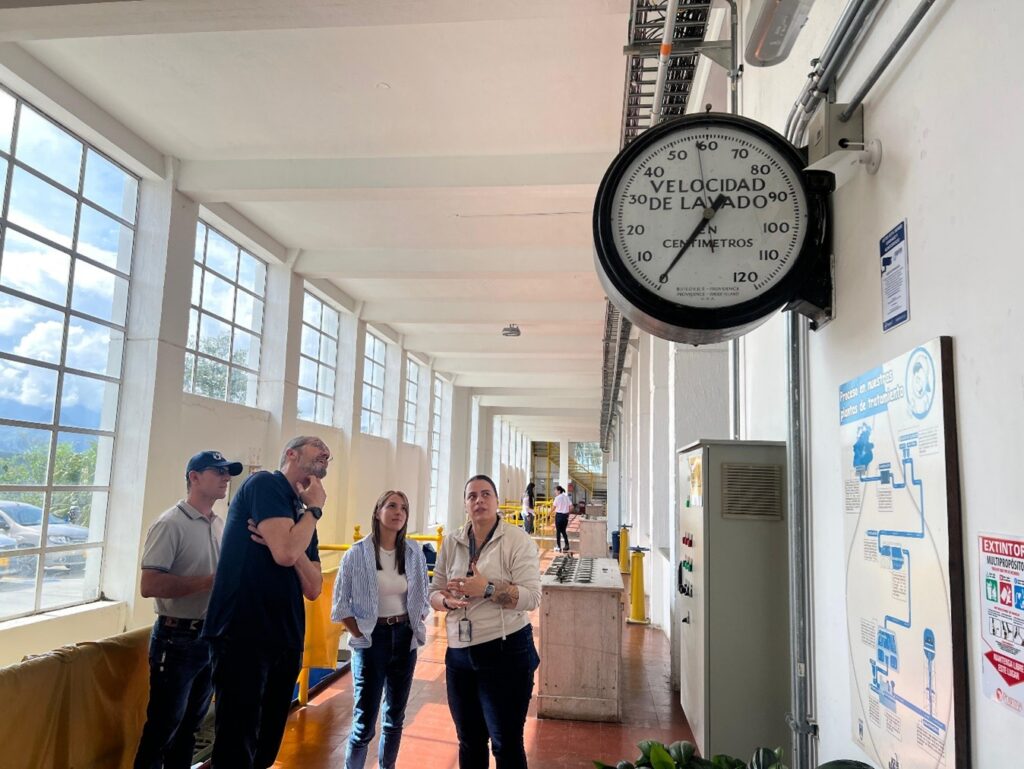
Strengthening Partnerships
Through the knowledge and skills acquired during the YEP programme, Mariana helped establish a new coordination mechanism with Corpocaldas, the local environmental authority, to improve the monitoring of non-domestic wastewater discharges. This collaboration was strengthened by the YEP network, as it included support from YEP alumna Melissa Moreno, highlighting the benefits of this learning network.
Mariana also participated in a technical exchange with Acuavalle S.A. E.S.P., a utility in Valle del Cauca, sharing best practices from Aguas de Manizales to support the early development of their asset management system.
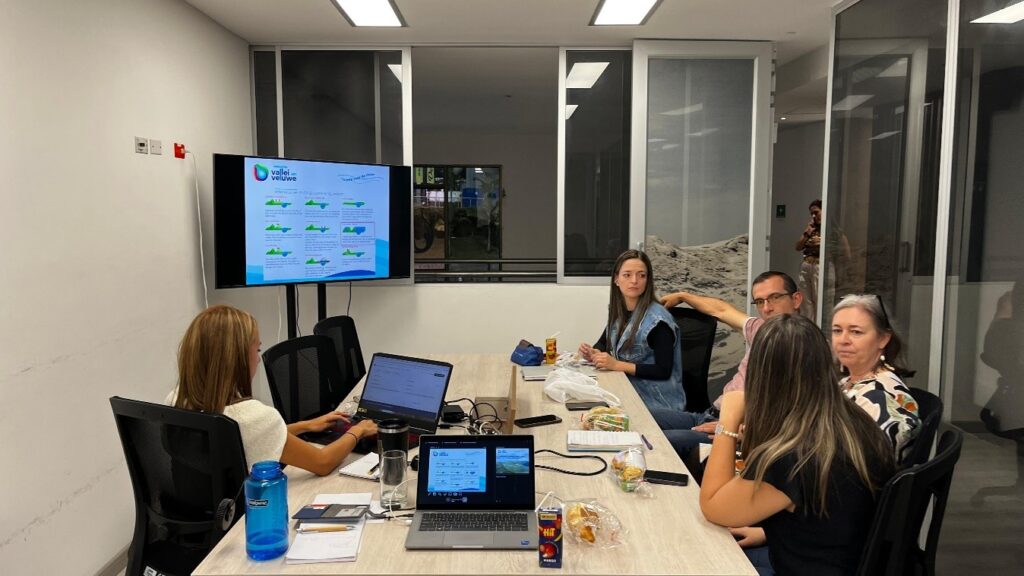
Pictured: Working session with Infrastructure team in Aguas de Manizales, including Mariana’s mentor Robbert Bruin from Dutch Water Authorities.
A Transformative Experience
Beyond her technical contributions, Mariana describes the YEP programme as a transformative journey:
“From the start, I’ve had access to training that gave me the tools to build a solid foundation for my career. I’ve strengthened soft skills like intercultural communication and teamwork, and gained self-awareness through tools like the MBTI. The support from my mentor and coach has been essential in navigating both technical and personal challenges.”
She also highlights the value of participating in online courses, particularly in Change Management, and looks forward to attending the National Public Services Congress (ANDESCO) to expand her network and visibility in the sector.
Building the Future of Water
Mariana’s story is just one example of the impact of the YEP programme. Since the beginning of the YEP programme, 68 YEPpers have graduated within Blue Deal partnerships. By investing in young professionals like Mariana, the Blue Deal is not only strengthening local institutions but also cultivating a new generation of leaders committed to sustainable water solutions.
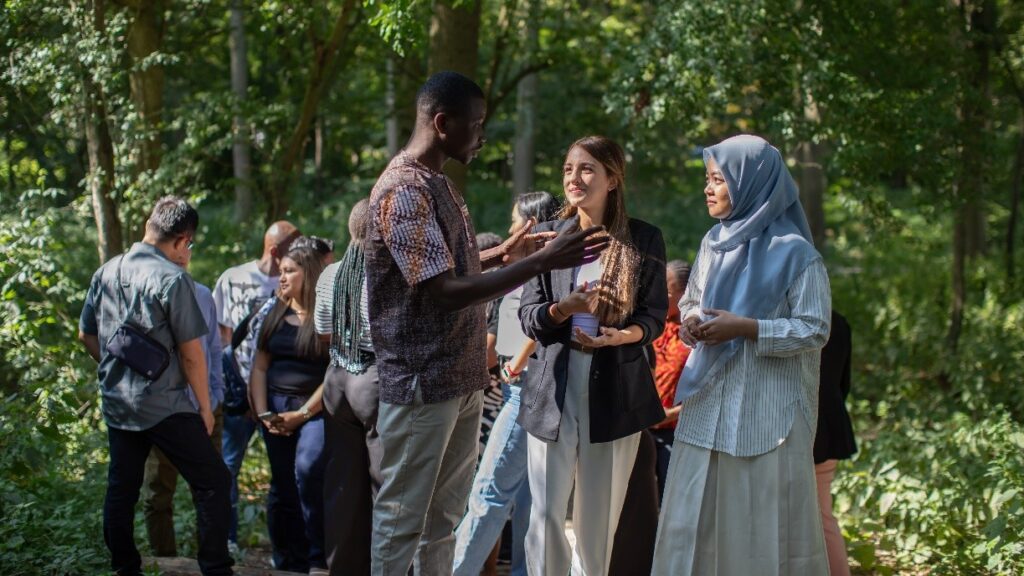
Pictured: Mariana with fellow YEPpers Paul (Burkina Faso) and Arum (Indonesia)

